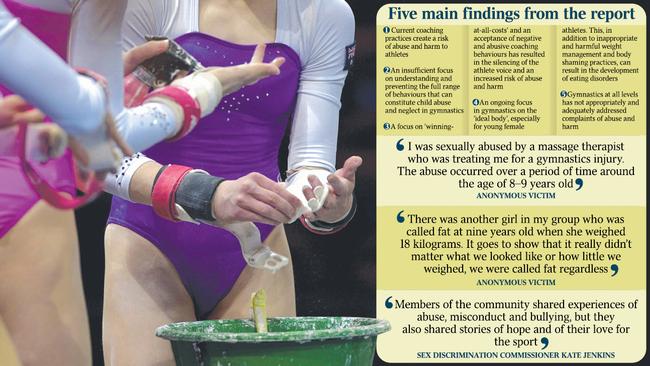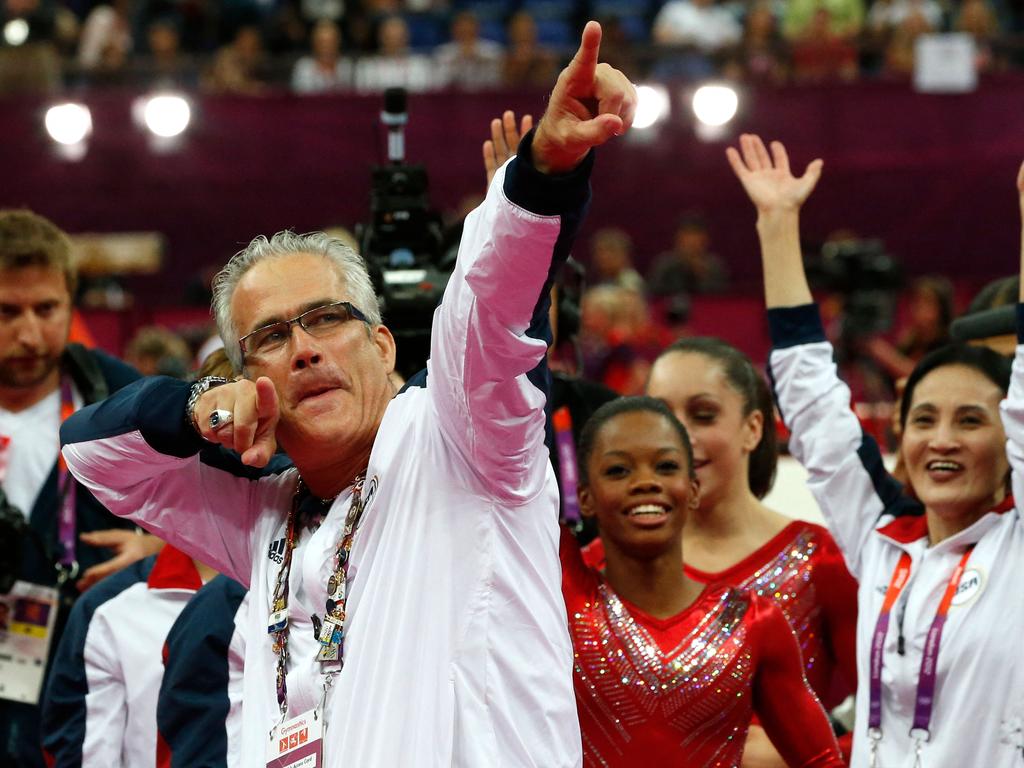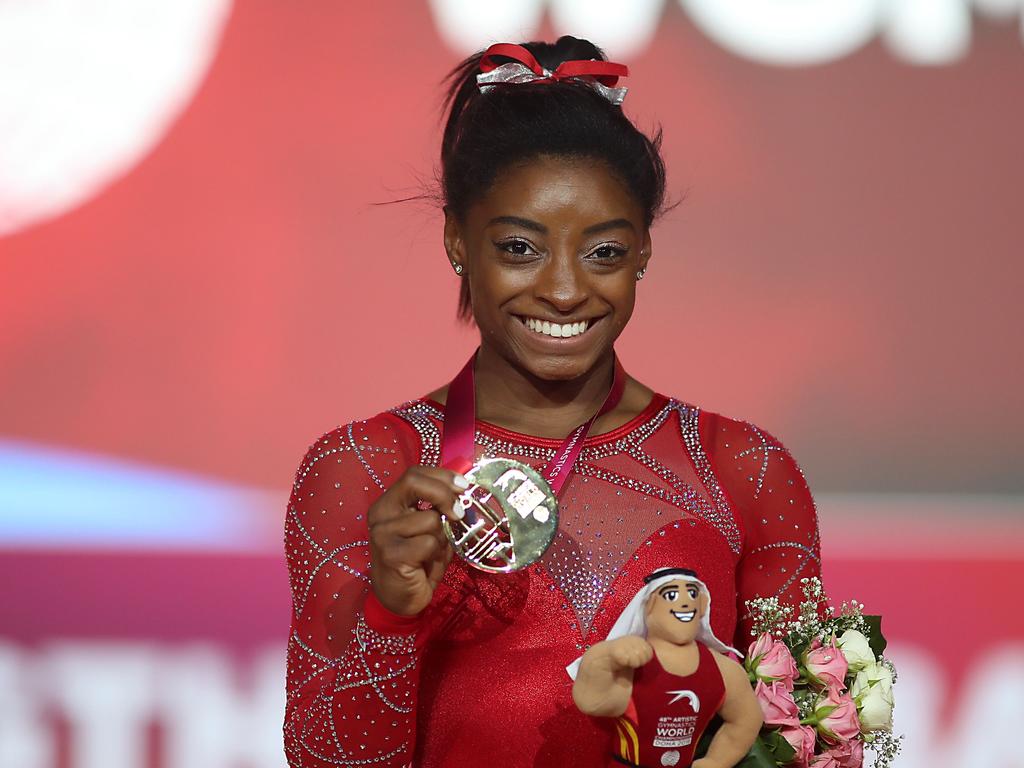Gymnastics’ ‘toxic culture of abuse’: Australian Human Rights Commission
Gymnasts as young as eight have been exposed to unacceptable risks bordering on child abuse, an Australian Human Rights Commission report has found.

A “win at all costs” culture has turned gymnastics in Australia into a sport that harms its athletes and exposes them to “toxic” physical, emotional and sexual abuse.
A damning report by the Australian Human Rights Commission has found young gymnasts, many of them girls and some as young as eight, have been exposed to unacceptable risks bordering on child abuse.
Negative and abusive coaching “has resulted in the silencing of the athlete voice and an increased risk of abuse and harm with significant short- and long-term impacts to gymnasts”.
Sex Discrimination Commissioner Kate Jenkins said the report revealed “significant cultural challenges” such as the failure to understand that some behaviours constitute child abuse and neglect in gymnastics.
The independent report, published on Monday and requested by Gymnastics Australia after serious complaints were aired by former and current gymnasts, did not investigate any specific allegations of abuse or misconduct.
But it makes a scathing assessment that gymnastics administration at all levels in Australia has “not appropriately and adequately addressed complaints of abuse and harm and not effectively safeguarded children and young people”.
“For all gymnasts, and particularly the girls and young women who make up the majority of gymnasts in Australia, I urge the sport to work swiftly and collaboratively to implement the recommendations included in this report and ensure child safety is considered a core responsibility at all levels,” Ms Jenkins said.

In a series of 12 recommendations, the commission calls for all matters regarding child abuse and neglect, misconduct, bullying, sexual harassment and assault to be investigated externally. “There is an ongoing focus in gymnastics on the ‘ideal body’, especially for young female athletes,” it states.
“This, in addition to inappropriate and harmful weight management and body-shaming practices, can result in the development of eating disorders and disordered eating, which continue long after the athlete has left the sport.”
It also acknowledged the “deeply felt and long-lasting impacts” of abuse and bullying on young gymnasts, and called on Gymnastics Australia to lead a nationwide apology to athletes who had been harmed.
Gymnastics Australia said the report was “confronting” but it would adopt all 12 recommendations.
“Gymnastics Australia unreservedly apologises to all athletes and family members who have experienced any form of abuse.”
Based on interviews with 57 current and former athletes, their families, staff and coaches, and 138 submissions, the report quotes gymnasts describing being “dehumanised” by their coaches.
“If they are winners, they are celebrated and given special treatment; if they are not winning, they are thrown away, discarded, ignored,” one interviewee said. Of 231,200 athletes in gymnastics around Australia, 77 per cent are female and 23 per cent male, with 91 per cent under the age of 12. The average age of all participants in the sport is eight.
The commission found the extremely high proportion of young female athletes in gymnastics contributed to a high risk of abuse and negative societal stereotypes and ideals around gender. The hiring of coaching staff lacked accountability and coaches’ behaviour was insufficiently regulated, resulting in power imbalances between athletes and coaches.
A culture of body-shaming and bullying created “an environment where abuse and mistreatment can thrive”. Pre-pubescent girls were forced to perform gymnastic tasks before they were physically ready, while abusive behaviour escalated when athletes graduated to elite performance.
One interviewee said coaches were unrestrained “and could push gymnasts to do whatever they considered appropriate”.
Another case study described abusive behaviour as “normalised”. It included minors being restricted from calling parents “for days or weeks at a time”, being yelled at and told disordered eating was necessary to succeed.
Minister for Sport Richard Colbeck says sports administrators have a responsibility to provide appropriate governance and support for all athletes and staff.
“The federal government, the Australian Sports Commission, and Gymnastics Australia will consider the AHRC recommendations and determine how athletes can be better protected,” Senator Colbeck said.







To join the conversation, please log in. Don't have an account? Register
Join the conversation, you are commenting as Logout